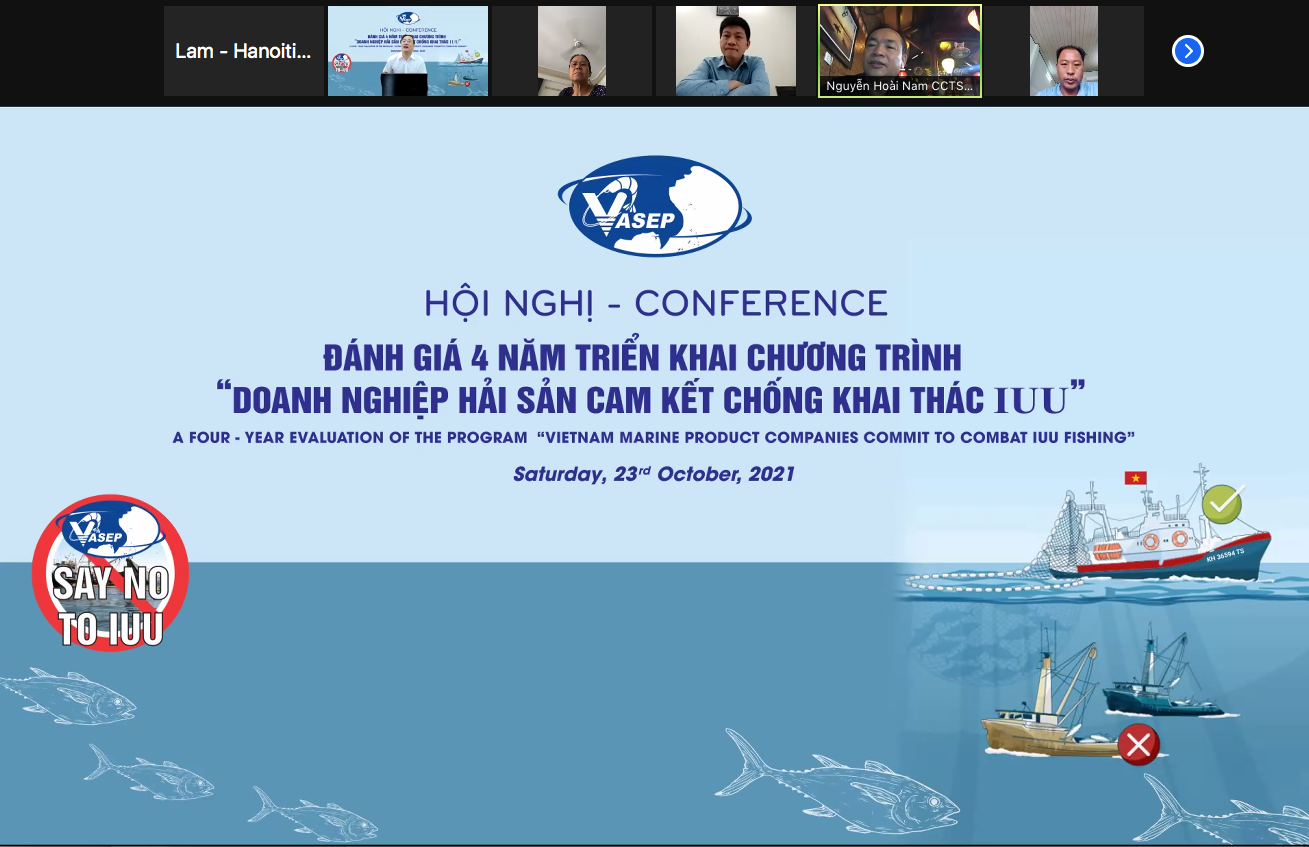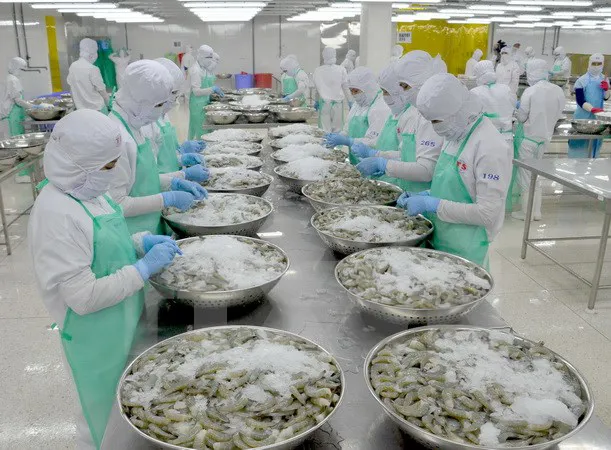Raising public awareness remains key to lifting EC’s yellow card: Experts
Law-abiding local fishermen should receive greater economic benefits than those practicing illegal fishing, in this way, the root cause would be addressed.
Public awareness, especially of local fishermen, is key for Vietnam to address the illegal, unreported, and unregulated (IUU) fishing in a comprehensive way and convince the European Commission (EC) to lift the yellow card on this matter.
| Overview of the meeting. Photo: Nguyen Tung |
Phan Thi Hue, head of the Legal Inspection Department under the Vietnam Directorate of Fisheries, made the comment at an online conference discussing the country’s efforts in combating IUU in the past four years today [October 23].
"The EC in recent meetings with Vietnamese authorities have made it clear that there is no way for Vietnam to see its yellow card removed if local fishing boats continue to operate in foreign seas," Hue said.
On this issue, Colonel Nguyen Dinh Phuc from the Vietnam Coast Guard High Command said supervision measures from the authorities could only solve part of the issue of IUU fishing.
“The comprehensive solution lies in addressing the root cause coming directly from the responsibilities of fishermen and seafood companies for their role in distributing fisheries products,” Phuc said.
“There should be more efforts to improve economic benefits for compliant fishermen for sustainable improvements in this regard,” he added.
Director of Hai Vuong Company Huynh Thanh Lin said from the business perspective, the lack of credible and verifiable information means it is difficult for enterprises to check whether fishery products they are buying come from IUU activities.
“A smooth and effective data sharing system from the entire value chain is essential,” he added.
| Processing shrimps for exports at Trung Son Company. Photo: VNA |
Urgency to lift yellow card
Nguyen Thi Thu Sac, vice chairwoman of the Vietnam Association of Seafood Exporters and Producers (VASEP), noted fishery and aquaculture products represent Vietnam’s fifth-largest export item in value at around US$9 billion or 4% of the total country’s exports in 2020.
The fishing industry provided a total of 4.7 million formal jobs, including two million direct and 2.7 million indirect jobs along the fishery's value chains.
“For the past years, Vietnam has been one of the world’s major seafood producers,” Sac said, noting the key objective for the country continues to be ensuring the industry’s sustainable development for higher living standards of people in coastal areas and protecting territorial sovereignty.
Vietnam’s seafood export to the EU has increased sharply over the past 20 years, from $90 million in 1999 to nearly $1.5 billion in 2017.
However, Sac noted the yellow card issued that year plunged the turnover to around $1.3 billion in 2019.
According to Sac, the Government and the local fishing industry have put strong efforts in addressing EC’s recommendations on IUU fishing for the past four years but acknowledged shortcomings continue to persist.
Sac pointed out the lack of compliance from fishing boats in installing vessel monitoring system (VSM) devices, and the ineffective cooperation between local agencies in supervising fishing activities via reporting systems.
“There would be more severe consequences for the industry once the yellow card is not lifted or even in case a red card is issued if the situation worsens,” Sac suggested.
VASEP Vice General Secretary Nguyen Hoai Nam added a red card would mean the EU market is totally closed for Vietnam’s fishery products.
In that case, it is estimated that Vietnam would lose around $480 million in seafood export turnover, but more importantly, would be the loss of credibility in the global market and stricter inspection measures imposed by import markets.
“The two or three years after the red card, the fishing industry would shrink by 30% in size, in turn affecting the livelihood of millions of people,” he added.
Nam, however, noted the positive response from the EU in reviewing Vietnam’s progress in combating IUU fishing.
“The prime minister has stressed the necessity to end illegal fishing in foreign seas by late 2021, which would serve as a major step for Vietnam to see the yellow card lifted in 2022,” Nam said.
| The EC is scheduled to hold an online meeting with the Vietnam Directorate of Fisheries on October 27 to review Vietnam's efforts in combating IUU fishing. |














